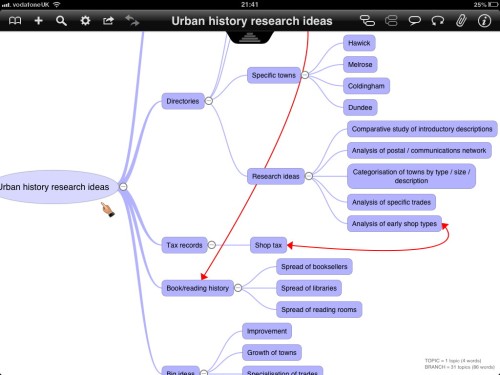Yesterday I attended the second day of this conference held at Perth Concert Hall. It was held in honour of my former PhD supervisor, Professor Charles McKean. Originally it had been hoped that he would be there, but sadly he died a few weeks ago. But it went ahead in his honour, in a positive manner.
Sadly due to my MS-like illness I could never attend both days, and had to choose one over the other. This meant that I missed a very moving appreciation of Charles by James Simpson, as well as Charles’s son Andrew talking about his father’s research. But overall I think I chose the better day for me, partly on timetabling terms, partly on subject matter. I am not a Renaissance or architectural historian, and the second day’s talks fitted better into the wider social and cultural context I could relate to.
The venue was good. I’ve never been there before, but I was impressed. I was using my wheelchair, and it was level access, and a good sized room for the 70 or so attendants (hardly any chairs free!). Catering was also good, including a nice buffet lunch. My husband accompanied me, to help me manage my wheelchair, and he was made very welcome.
The second day started with the second batch of coach tours to nearby castles. I didn’t go on these, partly for wheelchair reasons, but joined the conference at the first coffee break, before the first main papers session. And it was a good one, looking at castles and tower houses in the wider context of landscape, and European culture. I was particularly struck by Shannon Fraser’s presentation about Fyvie Castle and some of the architectural research that has been done there by the National Trust for Scotland. And Marilyn Brown’s presentation on Edzell Castle – I really must go there! It is not too far from me in Angus – and the iconography and imagery used, and still visible, in the Renaissance garden there. The way she was able to identify likely original European prints that were used as the basis of the designs still visible today was highly impressive. Indeed every time anyone mentioned the use of books by castle owners I would scribble frantically – book/reading historian in full mode. That included books on architectural design, garden design, military manuals, and so on. I also liked it when the speakers could say that the owner owned a particular book, which may have influenced the design of their home.
The second session, after lunch, looked more at interpretation of old castles and houses. This included a thought-provoking talk by Michael Davis, on whether the quest for authenticity is at the expense of castle preservation. I think he gave us lots to think about, and in an era where many Scottish castles are in dire need of preservation, but also people who can afford to pay for the work to be done, it was an interesting thing to muse over. He was followed by Fiona Fleming from Historic Scotland, who talked about how her organisation works with academics – historians, architectural specialists etc. – to understand the buildings that they look after, and to present an image of what they were like in the past to visitors. She closed with a recently created artist’s impression of a Renaissance feast, and there was Charles, in the front, depicted in hose and the rest, raising his tankard to the viewer. Quite a few of us nearly choked up at that point, but it was a lovely thing to close the session on, before the closing reflections by Professor Konrad Ottenheym, with the image of Charles plus tankard staying on screen.
If I have one criticism of the event it’s that quite a few speakers over-ran their time slots, quite considerably, 10/15 minutes, which with 20 minute slots and a fairly tight schedule caused timetabling problems. The pity was that it ate into the time for discussion and questions afterwards, in one case obliterating it, and I wish that hadn’t happened, because I think it’s at those times that the speakers and audience could have had a particularly productive discussion about taking the research forward that Charles has inspired so much.
That’s my one criticism, but in other respects it was a superb day. I’m really glad that I went, I want to learn more about Renaissance architecture and studies now, and I think it was a lovely tribute to Charles, and a very positive way of celebrating an active research area, that I hope will continue long after his time. I also thought it was lovely that so many of the speakers I saw included personal recollections of Charles in their talks, echoing memories for many of us.
Read Full Post »
